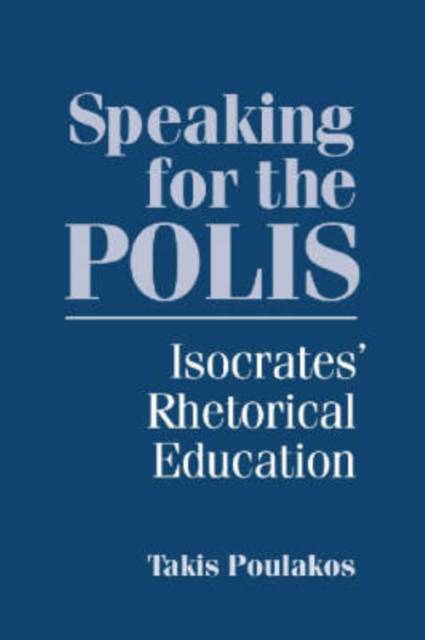
Bedankt voor het vertrouwen het afgelopen jaar! Om jou te bedanken bieden we GRATIS verzending (in België) aan op alles gedurende de hele maand januari.
- Afhalen na 1 uur in een winkel met voorraad
- In januari gratis thuislevering in België
- Ruim aanbod met 7 miljoen producten
Bedankt voor het vertrouwen het afgelopen jaar! Om jou te bedanken bieden we GRATIS verzending (in België) aan op alles gedurende de hele maand januari.
- Afhalen na 1 uur in een winkel met voorraad
- In januari gratis thuislevering in België
- Ruim aanbod met 7 miljoen producten
Zoeken
Omschrijving
Speaking for the Polis considers Isocrates' educational program from the perspective of rhetorical theory and explores its relation to sociopolitical practices. Illumining Isocrates' efforts to reformulate sophistic conceptions of rhetoric on the basis of the intellectual and political debates of his times, Takis Poulakos contends that the father of humanistic studies and rival educator of Plato crafted a version of rhetoric that gave the art an important new role in the ethical and political activities of Athens. Poulakos demonstrates how Isocrates adopted, transformed, and put to new tasks Protagorean and Gorgianic notions of rhetoric and how he used rhetoric to resolve tensions between political equality and social inequality. Poulakos suggests that Isocrates' rhetorical endeavors gained stability through narratives of values and shared commitments, credence through seasoned arguments about plausible solutions to political discord, and weight through the convergence of the speaker's words and quality of character.
Specificaties
Betrokkenen
- Auteur(s):
- Uitgeverij:
Inhoud
- Aantal bladzijden:
- 148
- Taal:
- Engels
- Reeks:
Eigenschappen
- Productcode (EAN):
- 9781570037931
- Verschijningsdatum:
- 14/05/2008
- Uitvoering:
- Paperback
- Formaat:
- Trade paperback (VS)
- Afmetingen:
- 152 mm x 229 mm
- Gewicht:
- 226 g

Alleen bij Standaard Boekhandel
+ 96 punten op je klantenkaart van Standaard Boekhandel
Beoordelingen
We publiceren alleen reviews die voldoen aan de voorwaarden voor reviews. Bekijk onze voorwaarden voor reviews.









